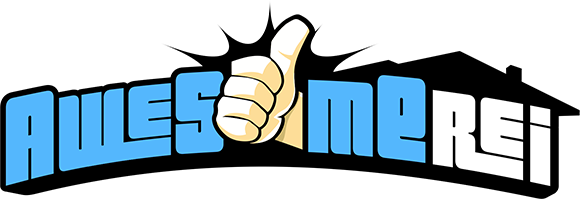
Competition Killer: 3 Ways to Build Instant Rapport With Sellers
 JP Moses here, sharing some really useful info I learned from my dear friend Shaun McCloskey back in the day… when he was actively buying, selling and teaching about short sales and how to build instant credibility with sellers.
JP Moses here, sharing some really useful info I learned from my dear friend Shaun McCloskey back in the day… when he was actively buying, selling and teaching about short sales and how to build instant credibility with sellers.
What you’re about to learn is not just applicable to convos with motivated sellers and in the REI arena — it’s also helpful in building rapport and credibility with anyone you speak with. Solid skills to use anytime.
Let’s get to it…
Fact: there are a lot of other people out there doing what you do.
And while I’m as abundance-minded as the next guy, it still stinks like poopy diapers to watch that crazy awesome deal you (almost) landed, slide sadly out of reach and into the clutches of the next schlub.
Am I right or am I right?
This blog post will help you with this very problem with 3 specific methods. Prepare to learn how to blow your competition out of the water.
SPLOOSH! 🙂
Like I said, each of these methods is valuable info I gleaned from my boy Shaun.
See, 2 of the top questions he would get all the time were:
- How is it that your deals seem to go so smoothly, with so few surprises from the homeowner?
- How come none of your deals get stolen out from underneath you by other investors?
Said another way: How the heck are you keeping your competition at bay?

So now, I’m sharing Shaun’s nothing-held-back answers to those very questions…
Make no mistake… though Shaun’s specialty was short sales, the sneaky little tricks you’re about to learn can and should be applied to absolutely any real estate investing business, regardless of your niche or focus… basically if you deal with people, then this is for you.
We’re going to talk about ways to help you eliminate your competition — your customers, banks, anybody that you're dealing with will not want to work with anybody but you.
How?
By building instant rapport.
And when I say instant, I mean, if you're not building rapport within the first 5 seconds, you're losing out on some of your rapport-building skills… and that could affect your deal later on down the road.
So how do you build instant rapport?
OK, that first 5 seconds is the most crucial time when you're being introduced or meeting someone for the first time. They’re pretty much summing you up within the first 5 seconds about:
- whether or not they believe you
- whether or not you're somebody they want to work with
- whether or not you're full of it
- whether or not they want to have a further conversation with you or whether the conversation ends right here
That all happens within the first 5 seconds. Truth.
And to demonstrate this, I just want you to think a little bit about a time in your life where you met someone and you hit it off with them really well, you immediately felt comfortable with them.

Think of that situation for a second:
- What type of qualities did that person have?
- What was it about them that made you feel comfortable with them right off the bat?
- What was it about them that set them apart from somebody else?
Now, think of the opposite…
I know you've met people at times where you immediately feel turned off by them and didn’t feel connected with them. Maybe you immediately felt like they were out to get you or you just don't trust them even though you're not sure why.
Well, this is something that Shaun and his team studied over the years because there were times when they met someone and felt instantly connected with them.
So what is it that makes those two people different?
Well, as Shaun continue to study this, he noticed one major thing: The people he felt connected with were most like himself.
Sounds pretty simple, right?
But the truth of the matter is people like people who are most like themselves.
See, if a person feels like you're similar, you'll build rapport much quicker.
So, how do you get somebody to feel like you're similar to them?
1. Mirroring and modeling
It’s nothing more than simply being more like the person that you've just been introduced to without compromising who you are as a person.
I don't mean going in and changing who you are and being cheesy…
I mean just being able to relate to the other person by being more like them.
How do you mirror and model?
When I talk about mirroring and modeling, I mean very specifically mirroring as though there's a mirror in front of you and you're going to be physically, intellectually and auditorily like the other person.

Think about this: If you're dealing with somebody who talks very fast and they want answers quickly and they talk loudly, but you're talking slowly, quietly, all cool, calm and collected — that person may not be able to relate to you because they want to get stuff done right now.
We want to mirror and model people not only in the intonation and the speed of their speech, but also in how loud and how fast they're speaking.
Conversely, if you’re dealing with somebody who is chill and you rush in and started explaining everything to them super-fast — you’re going to lose them right off the bat.
With a quiet, slow talker, when you slow down your speech and talk more like they're talking, you’re going to build more rapport with them much quicker than if you’d be loud.
Again, if someone is loud and all red in the face, and you’re shy and reserved — you’re going to get walked all over.
So, you have to adapt part of yourself at the moment so you can relate to the other person. It's as simple as that.
This is effective in person and on the phone.
That's how to build rapport through auditory mirroring and modeling.
We’ve also got the physical aspect.
Think about how people “talk” with their body language and gestures…
When you’re dealing with somebody who’s on the edge of their seat, leaning in and their hands are all over the place… but you’re sitting back in your chair, hands on your lap — you won’t connect.
So, we can definitely also use our gestures and our physiological body to build rapport with people. Be a mime — just not the annoying ones who do that ‘I’m stuck in a box; I’m pulling in this long, heavy rope’ stuff.
It will allow you to connect with them in a more relatable way.
I strongly suggest you start practicing some mirroring and modeling… you’ll be pleasantly surprised at the positive results.
Moving on to our second way to sway sellers…
2. Ask open-ended questions.
That gets the other person talking about their favorite subject.
What is everyone's favorite subject?
I got news for you… their favorite subject is themselves.
So the more we can get them opening up and talking about themselves and their situation, the more we can build more rapport with them.

Perfect example from Shaun. He and his wife went out to dinner with another couple, and at the end of the dinner, Shaun told his wife how much fun the dinner was, how great the couple was, how he enjoyed talking all night, how he felt like he could relate to them so much. Shaun’s wife looked at him and said, “Of course you did, that's because you talked about yourself the whole night! They hardly said anything. All they did was ask you questions about your business and your life and our married life together. And you talked about it all.”
Sure enough, he built unlimited rapport with them. Or I should say, they built it with him because he sat there and talked about
There is certainly a lot of truth to that.
So if you want to build instant rapport with somebody, you just need to get them talking about themselves.
Boom. It works.
And the way you do that is by asking open-ended questions. Here's what I mean… a close-ended question is something that requires a one- or two-word response. What is your favorite color?
An open-ended question is something like:
- “Tell me, Mr. and Mrs. Homeowner, how will you feel when all of this has been put behind you and you now have learned all of the valuable lessons for this?”
- “How will you feel after your family is on the other side of this foreclosure?”
- “How has this foreclosure affected your relationship with your family?”
- “How has your experience been when you've had conversations with your bank about your current situation?”
Those are not questions that allow them to give simple yes or no answers. They have to think about it and they have to generate a longer response, which opens them up…
It gets them talking about their situation. And next thing you know, they feel like they have a rapport with you when they're the ones who have done all the talking.
This method works great… even with somebody who's normally shy. They'll become engaged in the conversation because they're talking about their favorite subject: themselves.
All right, so we've talked about mirroring, modeling and asking questions.
Now, we’re at the third method to help you build instant rapport…
3. Play different roles.
Throughout the course of the conversation — in which you’re mirroring, modelling, miming, and asking open-ended Qs — we're going to play different roles.
There are 2 different roles that we typically play.
- The listener.
- The leader.
And there's a time to be one vs. the other.
When we first start the conversation, we want to be the listener because we haven't built a relationship yet. We need a relationship before we can start giving advice.
We start to build a relationship with people as we're asking open-ended questions. As the homeowner is answering more of the questions, they're starting to feel more open to us. They're starting to feel like they have more of a relationship with us, even though they may not know much about us yet… because they've been talking about themselves.
But, they're now building a relationship and rapport… and getting this situation where it needs to be is important so we can then turn around and be the leader.

Once we've listened, at some point, the homeowner is going to want us to turn from being a listener into a leader. Because they're going to want to know: What do I do about this situation?
And there's a bit of an art to this, you’ll feel out when the time is right for you to gently switch roles… make your best judgment call. The more you do it, the easier it is to time it right.
Once you feel like they've opened up to you enough, you can change roles to become the leader. The homeowner is looking to you to not necessarily make decisions for them, but they want advice from you.
They’ll want to know what they should do.
At that point, as the leader of the conversation, you start to give people what their options are.
Now, when I give people what their options are, I never talk anyone into or out of anything. That's why I love this business. I don't feel like a slick/sleazy salesperson. I don't even need to be good at sales…
All I have to do is let people know what their options are at that point, when I become the leader, and then I let them make a decision
Now, if I’m going to give any advice — the only way I do it is by saying: “Here's what I would do if I were in your situation, but I'm not in your situation you are. So, Mr. and Mrs. Homeowner, ultimately, you're going to have to make the decision on what to do in this case, but here's what I would do…”
I sometimes even reword that to say, “If my mother was in your situation, here's what I would tell her to do. But again, you're not my mother, so you're going to have to make your ultimate decision. But here's what your options are and you decide.”
I’ll say it again — that's why I love the business. I don't ever have to talk anyone into or out of anything. I just simply present them with their options and let them choose.
There you have it.
So, these are 3 fundamental keys to building instant rapport.
When you do this — and you don't make people feel like you're selling them on something — you're just mirroring and modeling… asking good open-ended questions… and then changing from the listener to the leader…
You're building that instant rapport. And you’ll get to the point where when it comes time for your seller or banker or whomever to make decisions, they’ll make those decisions much more freely, much more openly and be on board with working with you even more.
Don’t wait. Start these methods with your very next conversation.


I’m learning everyday! AWESOOOOME!
I have gotten the best information from you guys!
Awesome information! Thanks for sharing this most valuable tool!
Great lesson to learn JP those are some really great and awesome advice to learn and to use
in this business when it comes to talking with sellers.
Seems pretty clear to put yourself in the clients position, then real problem solving can begin with less barriers. Very good examples and explanation. !
Thank you, JP for that valuable information. It’s priceless and remarkable. Give Shaun our great appreciation for his brilliant approach to helping those in need in our business. Eldridge
Mimic potential clients tone, level of excitement, gestures and the like. Allow them to do the talking, learn what their business pressure points are to sincerely offer solutions as a trusted associate.
I’m so impressed with this technique, that I will employ it, immediately in reaching out to my Sellers. Thanks,JP for sharing. Eldridge
Thanks for thoughts on rapport building and then becoming a valuable leader-resource. Do you have your insights written in a book or pamphlet for easy access and review.
Simply Awesome!
Going downhill in a handbasket…whatever happened to honoring a handshake or keeping one’s word???
That was so good
Salutations everyone,
this is my take on the subject matter…
#1 MIIRRORING AND MODELING:
” When in ROME do Like the ROMANS”
#2 ASK OPEN ENDED QUESTIONS:
” Questions that will make other party, elaborate
more openly about, their likes, dislikes,preferences etc.”
#3 PLAY DIFFRENT ROLES:
” Similar to #1,except that By Listening Your are
Learning how to best cater to the persons specific needs. Hence, Leadership…By Trustworthiness, by Example, and commitment to all parties involved.
By listening I will Know what options to Bring to the table and assume the Leadership role…No pressure
on my part…I exercise the ” KISS” Symdrome…
Keep It Sweet and Simple…The more Bees I catch, the
more Honey to Harvest… Correct me if Im wrong…
Thanks
Love this, Louis! Thanks!
Always listen so you can lead
All I can say is I’ve paid close attention and even went back and read it the second time just to make sure I absorbed everything I possibly could. Thank you for all the tips and the suggestions and I’m going to have to start practicing this right away! Thank you again.
Mirroring/modeling, open ended question. listener to leader providing options all sounds like a tried and proven process for building rapport in the most efficient manner possible. I particularly enjoy the part of providing options verses using hard selling tactics.
Never been in sales before but this is
very interesting
Very informative. I have been around people most of my working days and I know that their favorite subject is themselves. Quite enlightening!!!
Very interesting. Listen and then Lead. Have open ending questions very good. Thanks
awesome just awesome information
I thought that three step approach was very enlightening it does have a element of selling but I believe that the that it had the human element and I liked it and I thought it was very thoughtful awesome job
i been in sales all my life and never heard about mirroring? Interesting!
Powerful. Educational
A million thanks
The 3 Fundemental Keys To Building Instant Rapport was Interesting.
Listen and then lead are lead and listen
Interesting
The above are basic fundamentals of successful sellers. Listen then lead, lead then listen.